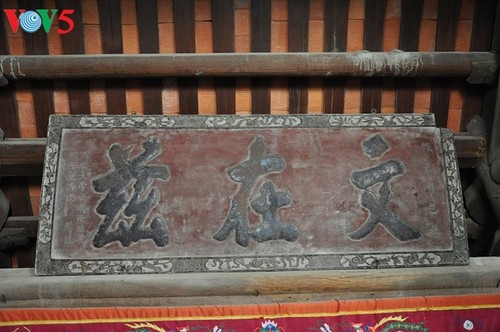 The horizontal lacquered board engraved with Chinese characters expressing the village’s tradition of studying and taking part in competition examinations. (Photo: Lan Anh) The horizontal lacquered board engraved with Chinese characters expressing the village’s tradition of studying and taking part in competition examinations. (Photo: Lan Anh)
|
Ke Ve villagers are very proud that they had so many laureates in the royal competitive-examinations.
During this feudal period, a doctoral village was any village which produced 10 or more doctors.
From the Ly Dynasty, which began in 1010, to the Nguyen Dynasty, which ended in 1945, Vietnam had 20 doctoral villages.
Dong Ngac is one of the top doctoral villages with 22 doctors. Every clan in the village had at least one doctor and the Pham clan had 9.
Village elder Pham Quang Dai recalls: “The first doctor was Phan Phu Tien in the Tran dynasty in 1396. In 1429, the later King Le opened a senior doctor examination to choose talents. Tien took this exam again and gained the senior doctoral title. We honor him for beginning the village's history of achievements. He has the distinction of being a doctor of two dynasties, the Tran Dynasty and the later Le dynasty. The village has had 21 doctors of literature and one mandarin. Ke Ve village ranked third nationwide during the feudal era in the number of laureates after Mo Trach village in Hai Duong with 36 doctors and Kim Doi village in Bac Ninh with 25 doctors.”
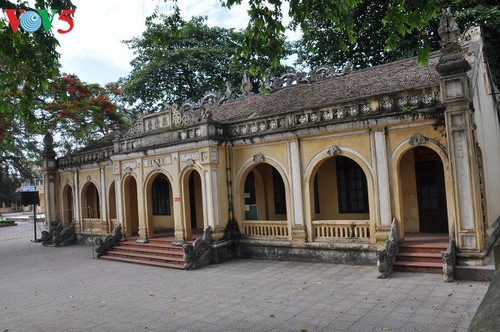
The vestige of the village’s school of various levels built in 1921. (Photo: Lan Anh)
|
Dong Ngac has been home to many celebrities who made great contributions in various fields. The village was granted a noble title by the feudal court for its contributions to the court. Most notable was Do The Giai who was a mandarin in the Le dynasty. He was given the honorary title of the highest distinction “Vuong” and was thereafter called Do Dai Vuong.
Do Quoc Hien, head of Do clan in Dong Ngac village, said: “Do Dai Vuong was a mandarin under King Le Canh Hung in 1760. He was righteous and honest. He was given by the King four honorific words praising his faithfulness. He was the only person in the Le dynasty who was given the honorary title of Vuong when he was still alive. When he died, he was given a title that reminded his children, his clan, and his fellow villagers to honor and remember his contributions to the village and the nation.
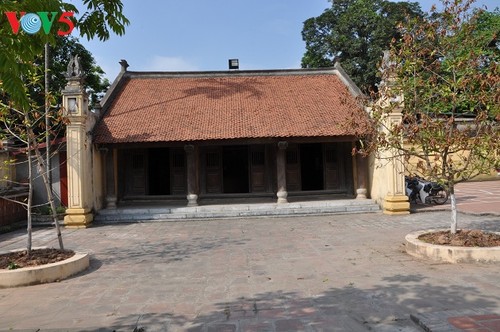 Dong Ngac’s Temple of Literature. (Photo: Lan Anh) Dong Ngac’s Temple of Literature. (Photo: Lan Anh) |
Most village gates in Dong Ngac are decorated with books or ink-slabs to symbolize the village’s learning tradition or parallel sentences advising the villagers to study hard to follow the village’s tradition.
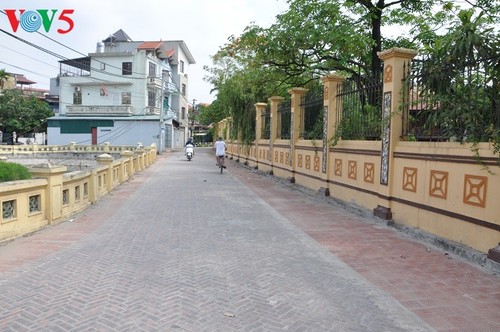
The alleys of Dong Ngac village today. (Photo: Lan Anh)
|
Mr. Dai said: “The whole village loved studying. Families and clans competed with each other. The tradition has been handed down from generation to generation. Pham Quang Trach is one of the best examples of devotion to learning. He studied so much that the trunks of the areca-nut trees in his garden grew smooth from his touching them as he walked around them all day reading books. Grandfathers and fathers became teachers to their children. Pham Quang Man, who passed a senior doctor examination, admitted his father was his teacher when the King asked who taught him. Pham Quoc Hoan who was taught by his grandfather Pham Tho Chinh and his father Pham Quy Ton also became a doctor.”
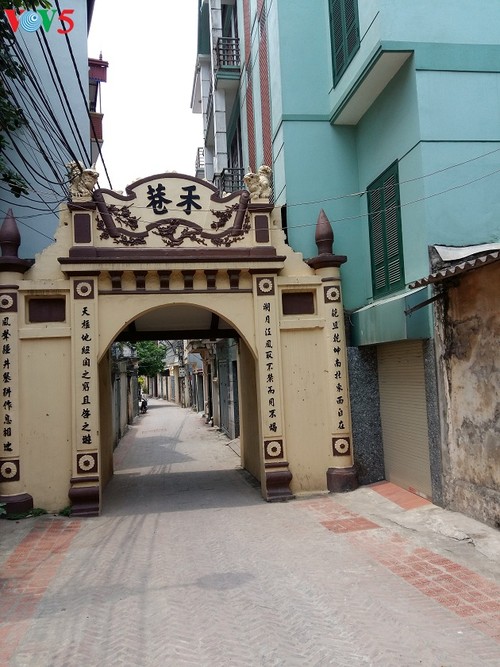 One of the gates to Dong Ngac village (Photo: Ngoc Anh) One of the gates to Dong Ngac village (Photo: Ngoc Anh) |
In recent years, Dong Ngac has had about 100 people with the title of doctor. Many of them have become senior State leaders, like former Deputy Prime Minister Pham Gia Khiem, Minister of Culture Hoang Minh Giam, and the historically notable patriots intellectual Hoang Tang Bi and Doctor Phan Van Truong.